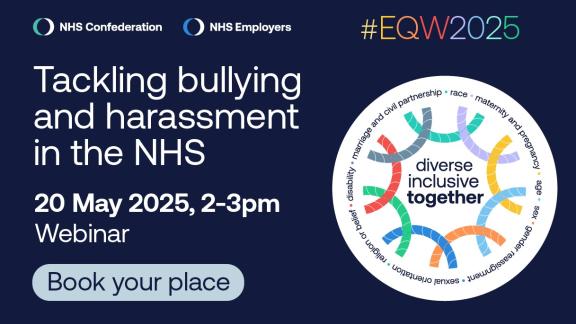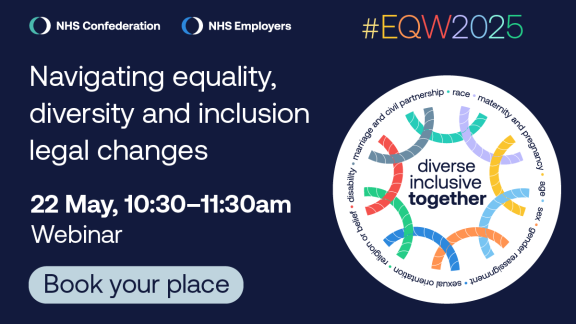Report: Feeling seen, being heard, taking action

A recent report published in December 2022, suggests that employees in lower-income households may have less access to agile working opportunities and may lack the resources required to fully benefit from agile work.
‘Feeling seen, being heard, taking action,’ is an academic piece of research commissioned by NHS Employers in partnership with agiLab. The report explores the concept of 'appreciation' in helping to address the agile working needs of workers from lower-income households.
agiLab is a collaboration between University of Sussex and the NHS to develop research-led best practices for effective agile working.
The act of appreciation
We found that appreciation is symbolic of the value and worth that lower-income workers are seeking and represents whether resources are available to engage in agile work effectively.
"I just felt valued, even though I was brand new, they were like well no, we'll give you the nearest station, we'll give you a part-time line and you can manage it around your children...I just felt like a totally valued person..they're just a lot more open minded and they're really inclusive as well....It was just really refreshing for me to actually be in an organisation like that."
Sandra, NHS employee
To understand what appreciation means for this group of employees, four themes emerged:

Theme 1 related to the positive experiences and difficulties that lower-income agile workers face.

Theme 2 outlined five different forms of appreciation that lower-income agile workers strive for.

Theme 3 identified ways to foster facilitation and incorporation of appreciation in agile work.

Theme 4 identified the barriers in facilitating and incorporating appreciation.
The report shows that workers in this group associate feeling seen and being heard with being valued and appreciated. They also value feeling supported through significant personnel taking action to help them meet their agile working needs. Feeling valued was indicative of them feeling a sense of worth and feeling that they can be the best they can be in the workplace.
Common values
The common themes from the research found that employees from lower-income households valued:
- good health
- time
- a loving family
- supervisor support
- financial security
- autonomy
- job-control
- self-esteem.
Recommendation to facilitate best practices in agile work for lower-income household workers
As a result of the findings, the research recommends embedding appreciation in the NHS workforce with particular attention being paid to this group of workers. Employers in the NHS should encourage line managers to foster a culture of appreciation in the agile workforce, and leaders need to ensure that the needs of the workforce can be implemented in a tailored and appropriate fashion.
"I suppose it's about not assuming that they're all set up to go, you do have to check on an individual level …So it's that kind of information, you need to check and just not make an assumption."
Amelia, employer.
THANK framework
The ‘THANK’ framework has been created to help employers embed appreciation in their organisations.



